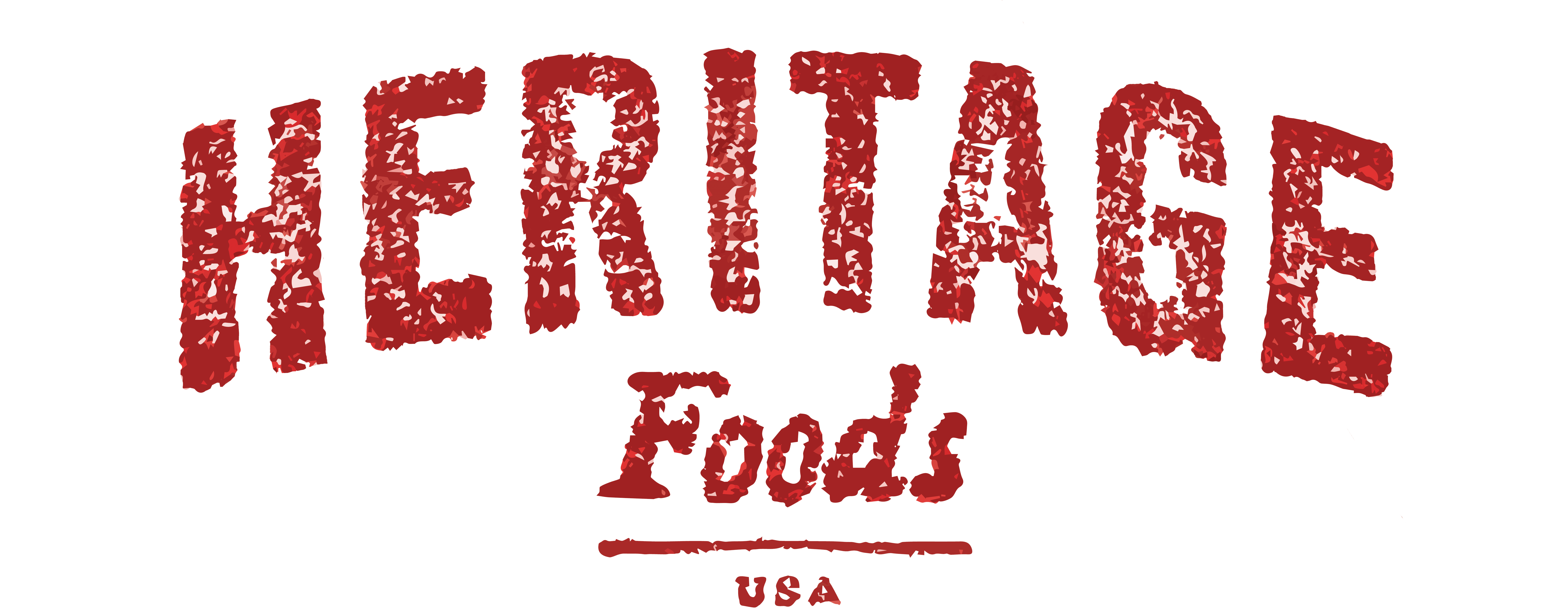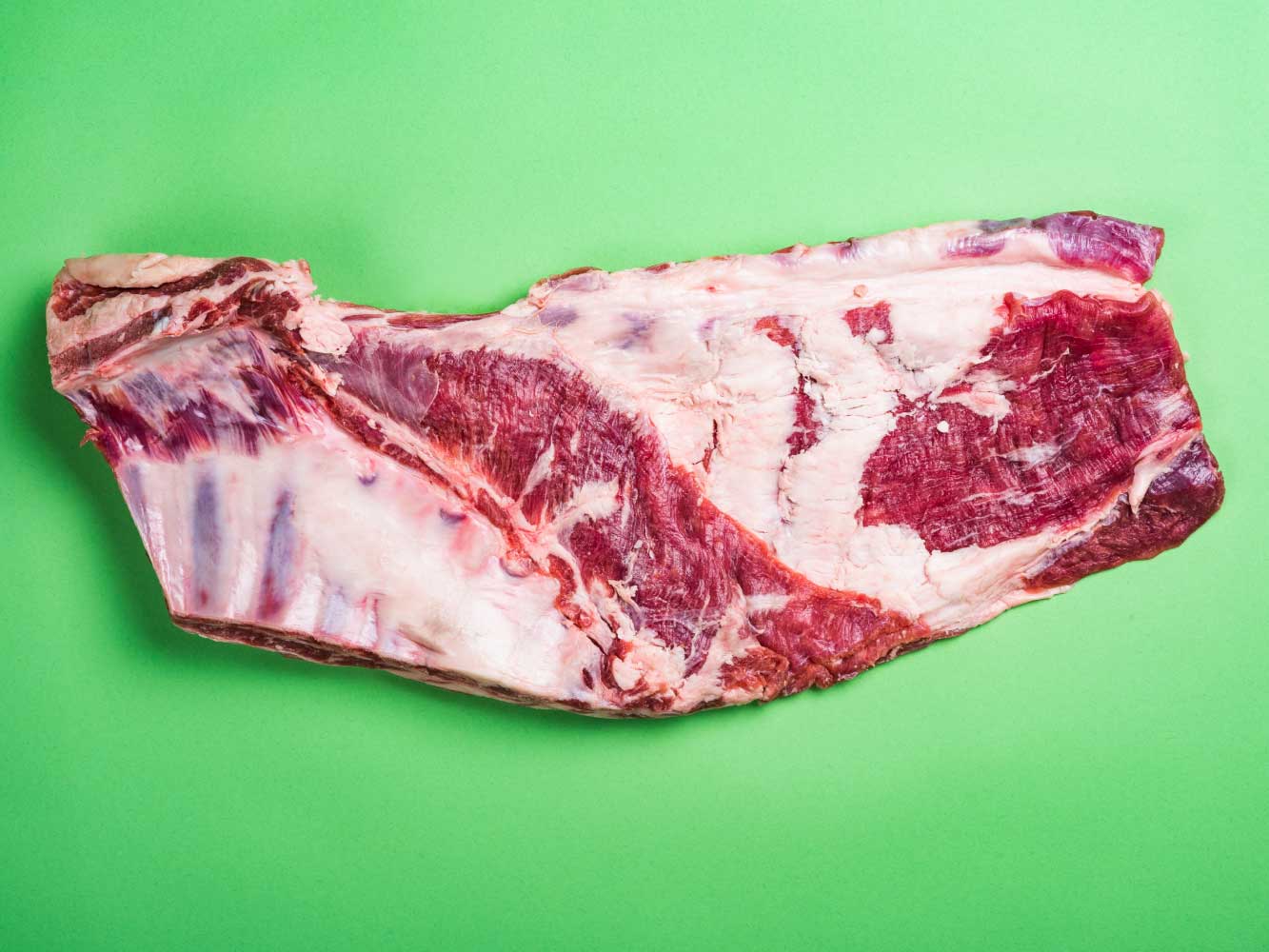
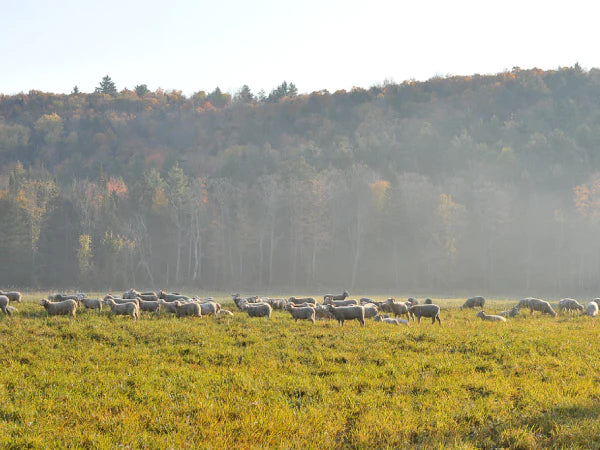
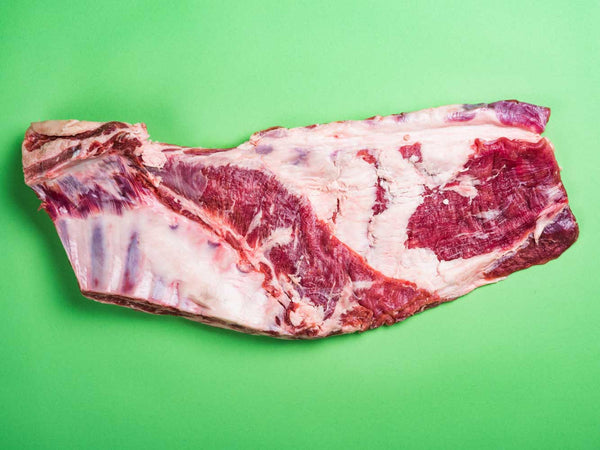
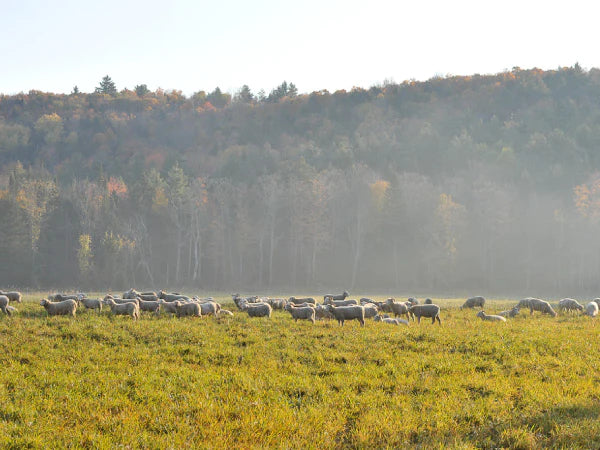


Bone-in belly — a tender braising cut — Tunis or Dorset Horn
Lamb Ribs
Bone-in belly/breast
Tunis or Dorset Horn
Choose your preferred weight and breed from the drop down menu above.
Truly one of the most luscious cuts, the bone-in belly is a full-flavored experience, moist, and boasting layers of silky fat. We think they are best prepared low and slow on the grill, for a genuinely sensational barbecue treat or roasted in the oven.
Our lamb is sourced from our long time farm partners in Vermont, Tamarack Sheep Farm, where three rare breeds of lamb are raised on pasture — breeds that have been raised there since the 1920s.
Ben Machin and Grace Bowmer raise three breeds of heritage breed sheep on their beautiful Tamarack Sheep Farm located on the rolling hills and green pastures of Vermont.
As Ben explains, “Grass, it is at the heart of our operation, and restoring grassland and soil is one of the reasons that we scaled up our operation.” All of the animals on Tamarack Farm have access to grass 100% of the time. In the summer, this means grass growing in the field, in the winter, or for animals that are housed in the barn, this means hay.
Ben and Grace make all their own hay, managing about 120 acres of hay land. They have four old John Deere tractors, and all the equipment to make round bales. They fertilize the fields and cut them three or four times each year to keep the quality high. Supplements for the lamb include whole grains as opposed to ground or pellet feed.
Most of the more successful commercial breeds of lamb are a mix of quite a few other breeds — hybrid vigor is a really big deal in the industry. But Ben and Grace are 100% committed to heritage breeds, both because they have a family tradition that’s almost 100 years old, and because they feel that the genetics are potentially quite important to the future.
The fastest growing sheep breed worldwide is the hybrid White Dorper and it would not exist if not for the foundational Horned Dorset genetics that were used to create it, the kind currently grown on Tamarack Farm. Dorpers are proving essential to allowing sheep farmers to adapt to climate change in various parts of the world, and it’s the heritage breed in them that allows them to be so resistant and strong. Ben and Grace have participated in a program with the Swiss Village Foundation and the Smithsonian, who collected eggs and semen from 80 of their animals over a 10-year period to store in cryogenic freezers.
There are incredible challenges to raising heritage breed animals. Heritage breeds are inherently less productive, in general, than the modern breeds. But for Ben and Grace it’s worth it: Ben’s great-grandfather started a Tunis flock in the 1920s. Years later, Ben's grandfather, Herb, began to work with Dorset Horn sheep for a 4-H project. In 2006, in Herb’s last days, Ben made the monumental and wonderful decision to dedicate himself to revitalizing the family flock. Grace joined Ben in 2008. Grace came with a background in architecture, site design, landscaping, and gardening, and together they purchased the land and built a barn.
Today with a fifth generation in the mix, there is even more reason to continue their efforts on the farm despite new challenges. Many of their local restaurant customers have taken a beating with recent global events, but sunny days on grassy pastures look to be in the future, which is good news for chefs and lovers of lamb! Ben and Grace have increased production on Hogget (1-2 year old sheep) and mutton (2+ year old sheep) on their farm because of increased demand.
According to Ben, the Tunis breed is lean but has the richest taste of all. He remembers the Navajo Churro as being a bit drier but still delicious and succulent. The Dorset Horn is very moist and mild flavored. Ben especially loves the Horned Dorset, “because both males and females grow horns!” Amazingly the taste and flavor of all three breeds becomes more subtle and mild as the animal ages on the hoof.
The Tunis is earthy with notes of buttermilk. The Dorset is lighter, with a clean, floral finish. The Navajo-Churro lamb is remarkably tender — even the braising cuts can be grilled.
Tunis, Dorset Horn, and Navajo-Churro Breeds of Lamb
Tunis: Originally from Tunisia, the breed was brought to the U.S. as a gift to George Washington and raised by the first three Presidents. This is the same lamb as was written about in the Bible, but the modern version has a less fatty tail.
Dorset Horn: A breed of sheep that spread over Dorset, Somerset, Devon, and most of Wales, in the 1750s this is the breed the English with a fine palate would eat for Christmas! Very few farmers still raise this endangered breed.
Navajo-Churro: The first domesticated livestock to ever come onto American soil, the Churro breed was brought here by early Spanish explorers and quickly adopted into the culture of the Navajo Nation in the Southwest. The breed was used for wool and meat but today is considered America’s rarest breed of lamb.
How to Prepare
1. Take the roast out of the refrigerator an hour prior to cooking.
2. Preheat your oven to 300℉.
3. Season liberally with salt and pepper on all sides.
4. Preheat a dutch oven with lid over medium-high heat and sear meat in neutral oil on all sides until brown. Drain some fat, remove the meat, and set aside.
5. In the same dutch oven, cook at medium heat about a cup of diced onions, ½ cup of celery, and ½ cup of diced carrots, until the onions are translucent. Add two tablespoons of tomato paste and cook for 2 minutes. Add one cup of wine or broth to deglaze the pan and cook until the wine has reduced by half.
6. Return the meat to the pan. Add enough boiling stock or water to cover the meat just slightly more than halfway. Add a bundle of herbs such as rosemary, thyme, and bay leaves tied with butcher’s twine to the dutch oven. Cover and place in a preheated 300℉ oven for approximately 30-40 minutes per pound of meat or until tender.
© 2025, Heritage Foods Powered by Shopify
